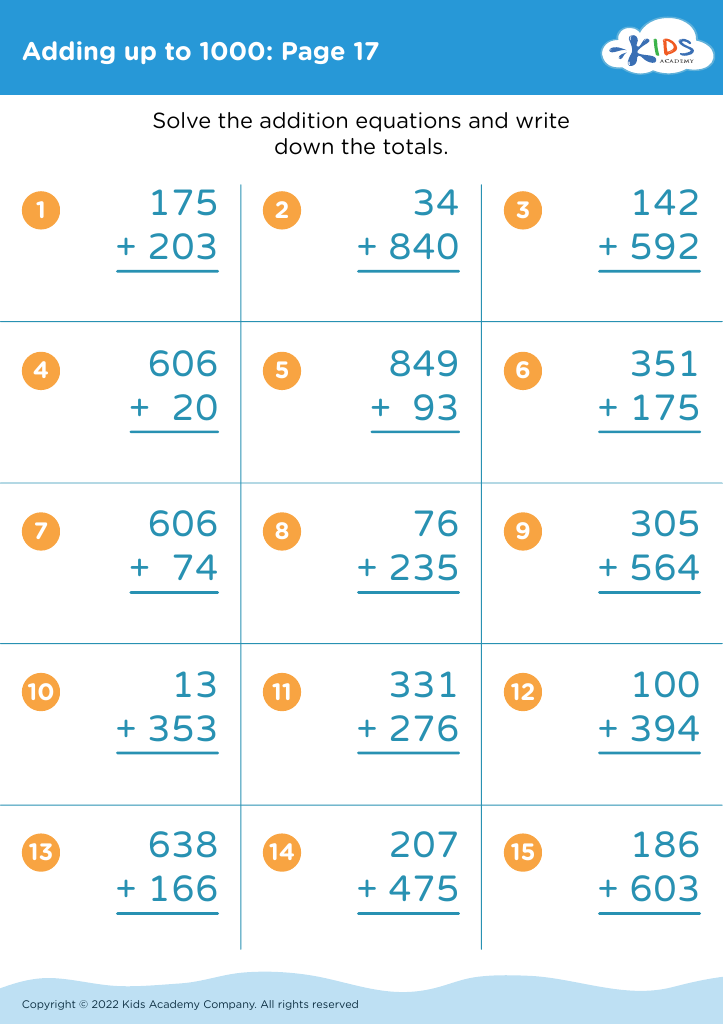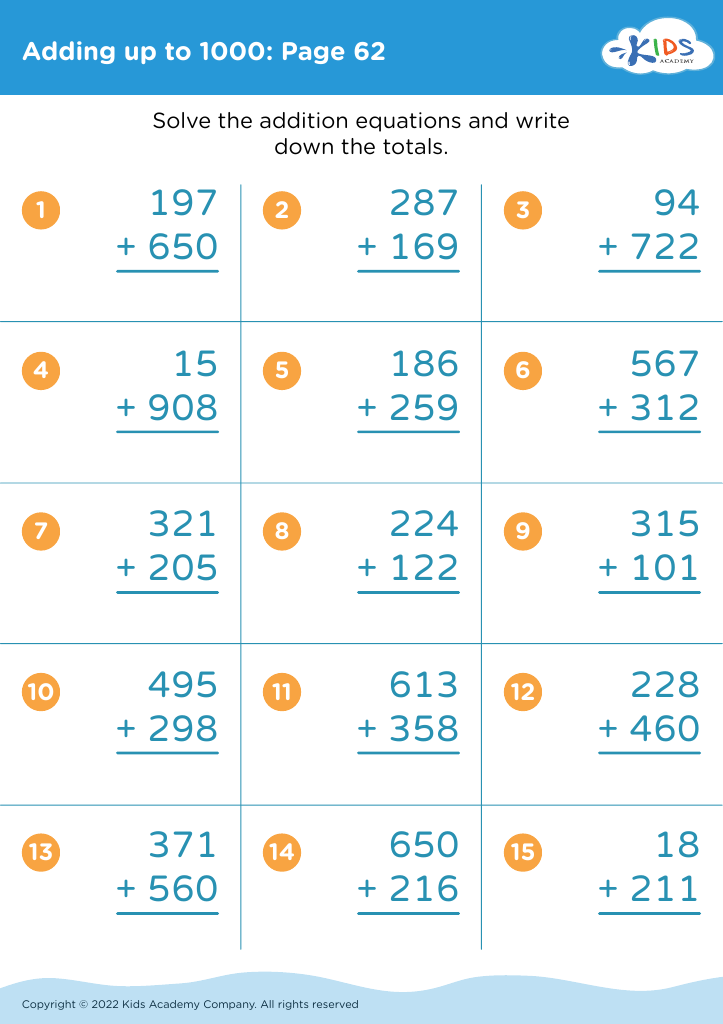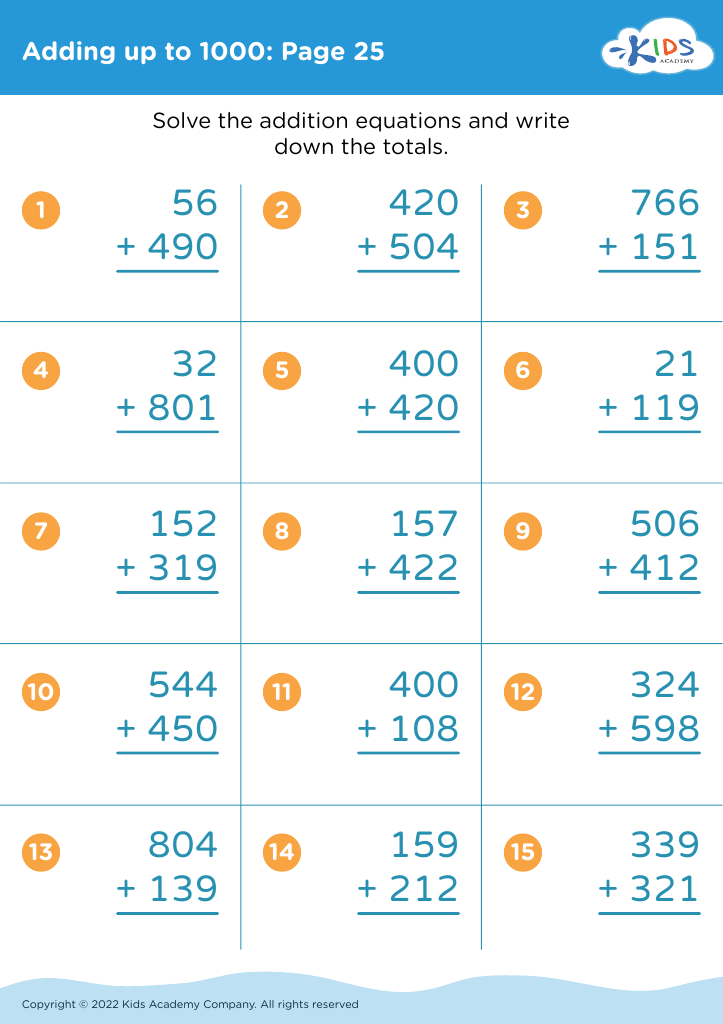Fraction comparison Adding up to 1000 Misc Worksheets for 7-Year-Olds
6 filtered results
-
From - To
Introduce your 7-year-old to the exciting world of fraction comparison with our engaging worksheets! This collection focuses on building essential math skills by making comparisons fun and interactive. Your child will practice identifying and comparing fractions, enhancing their understanding of numerical relationships. The worksheets are designed to challenge young learners while keeping them entertained, helping them add up to 1000 with ease. Perfect for home or school use, these resources support personalized learning at their own pace. Foster a love for math as your child develops confidence and proficiency in fraction comparison. Explore our printable worksheets today!
Understanding fraction comparison is essential for 7-year-olds as it lays a foundational skill for their overall mathematical development. When children learn to compare fractions, they not only grasp basic concepts of parts of a whole but also begin to develop number sense and critical thinking. Mastery of this concept enables them to solve problems involving real-life scenarios, such as cooking, sharing, and measuring, making math relevant to their experiences.
Furthermore, understanding fractions helps pave the way for more complex mathematical concepts in the future, such as addition, subtraction, and even fractions with different denominators. Teachers and parents should emphasize this topic because it builds confidence and fosters positive attitudes toward math—an area where many students struggle.
Moreover, comparing fractions contributes to improving children’s abilities to think analytically. It encourages them to assess relationships between numbers, thereby enhancing their problem-solving skills. Therefore, by focusing on fraction comparison, adults can support children's learning processes, ensuring they develop necessary skills that will serve them throughout their educational journey and beyond. The activity can be engaging and fun, fostering a love for math that benefits children long-term.




















